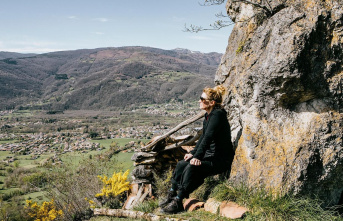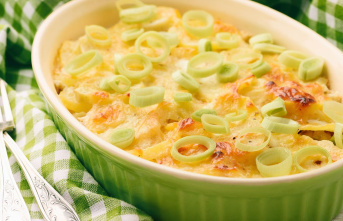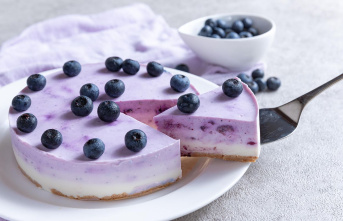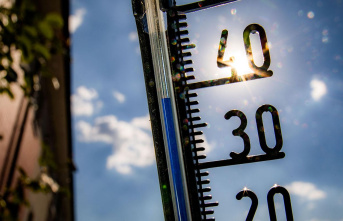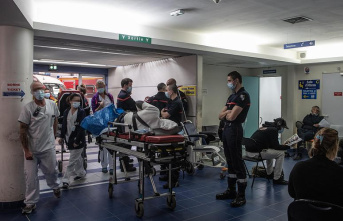Sequencing the DNA of Tío Pepe, the world's leading Sherry Fino, has been the commission received this week by the Barcelona laboratory of François Chartier, author of "Papilas and Molecules", considered the bedside book for every chef and sommelier who ventures into in the lavish world of pairings based on the aromatic and gustatory science of molecular harmonies. The results of the research on this unique Fino will be presented at the ninth Sherrymaster by Tío Pepe to be held at the beginning of 2022 at the González Byass winery, in a total immersion of one and a half days in the universe of Sherry wine. for sherry lovers.
The order was communicated this Thursday in Barcelona during a tasting with pairing of four tapas by Albert Raurich, from the Dos Palillos restaurant, accompanied by the lyrical explanations of Antonio Flores, considered the best oenologist in fortified wines, in addition to the interventions of the François Chartier himself, who also presented the publication of his first manifesto entitled "Biodiversity: the missing link in the global concept of terroir", both wine and gastronomic.
Considered the most desired sherry in the world, according to the latest edition of "The Drinks International Bar Report", Tío Pepe is a fino from the Palomino Fino grape variety. It ages for at least 4 years in American oak barrels using the traditional criaderas and solera system. The fruit of this elaboration is an iconic wine that exports the culture and essence of Jerez, one of the great wine regions of the planet, to more than a hundred countries.
Sherry wine is based on the characteristic "poverty" of its sandy soil, which brings flavors of chalk, calcium, iodized and saline to a vine that is expressly forbidden to irrigate. With only three grape varieties (palomino fino, muscatel and Pedro Ximenez) biological aging is unique and complex, where oxidation appears in the absence of the flower veil and a different aging system prevails, in criaderas and solera, as they are also different the measures and even an imaginary currency of its own, the winery peso, which lasted in the Marco de Jerez until the emergence of the euro.
The González Byass tasting at the Chartier World Lab in Barcelona was based on four wines: Tío Pepe, Tío Pepe en Rama, Leonor and Amontillado de Añada 1975, which were respectively accompanied by crispy asparagus, a dehydrated oyster based on the Japanese technique hoshigaki, battered cocochas and a lacquered rib mojete finished on the grill with orange zest and fresh herbs.
François Chartier's passion for aromas led him to follow his own path, breaking some of the rules of his profession. In 2002 he created a new science: that of "molecular harmonies", based on the potential for aromatic synergy between foods, as well as between them, wines and different beverages. Best sommelier in the world in French wines and spirits, at the 1994 Sopexa Grand Prix in Paris, and best innovative cookbook in the world, twice in 2010, in Paris, and 2016 in China, he is currently an advisor to the committee of investigation of the new SONY AI project: Artificial Intelligence and Gastronomy in Tokyo and is «Master Blender» in one of the oldest sake breweries in Japan, in addition to advising, among other companies, Damm in the elaboration of its Equilater beer.
González Byass is a family winery founded in Jerez in 1835 and dedicated to the production of wines and spirits. Fino Tío Pepe, oenological jewels such as Noé or Apóstoles and Brandy Solera Gran Reserva Lepanto, consecrate this firm as one of the main wineries. Tradition, research, sustainability that pursues the durability of five future generations, as well as the search for quality and wine tourism are the pillars on which González Byass has focused a work backed by almost two centuries of experience.
In recent decades, González Byass has incorporated wineries from different oenological areas of Spain, such as Bodegas Beronia -D.O.Ca. Rioja-, Viñas del Vero -D.O. Somontano-, Cavas Vilarnau -D.O. Cava-, Finca Constancia -V.T. Castilla-, Finca Moncloa -V.T. Cadiz-, Beronia Verdejo -D.O. Rueda-, Pazos de Lusco -D.O. Rías Baixas- and Domain Fournier -D.O. Ribera del Duero. In 2016, the company took the ocean leap with the incorporation of the Chilean family winery Viñedos Veramonte and, in 2017, it completed the acquisition of Casa Pedro Domecq (brandies and wines) whose main activity is in Mexico. It completes its range of products with La Copa Vermouth, Chinchón de la Alcoholera anise, Granpecher and Granpomier fruit liqueurs, as well as high-end distillates such as Nomad Outland Whisky, Druide vodka and The London Nº1 and Mom gins. It also distributes in Spain the Deutz champagne, the exclusive Single Malt Whiskey The Dalmore and Jura, by Whyte


